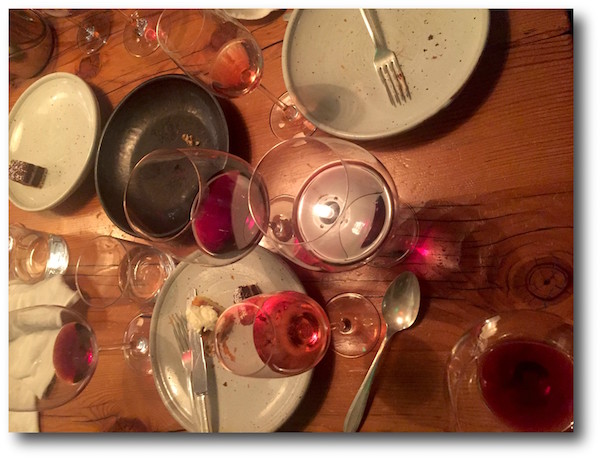Discovering Crémant d’Alsace Rosé
When I think of the wines of the Alsace I think white wine. After all 90% of the wines produced in the Alsace are white. But there’s growing interest in one particular red wine, Pinot Noir. This is a recent development, in part due to changing climate conditions. The Alsace already has a staggering 15 different soil types and now it has a longer growing season. Limestone and clay ensure that Pinot Noir will develop the right acidity and tannins. Good Pinot Noir never happens by mistake! I recently enjoyed a wine dinner with a number of different bottles of Pinot Noir from the Alsace. They had all the characteristics I expect from Pinot Noir—notes of strawberry or raspberry, smoke, leather, sometimes spice, fresh acidity. Some were fresh and vibrant, others more complex and earthy. But the wine I enjoyed the most? Allimant Laugner Crémant d’Alsace Rosé. It's bright with strawberry and lemon, and deliciously fizzy and can be found for under $20.
I love sparking wines and Brut Rosé in particular. Crémant is the French name for sparkling wines outside of the Champagne region. Made exactly the same way as Champagne, it's the second fermentation that gives the wine bubbles. Crémant is made from several different grapes in the Alsace, but Crémant d’Alsace Rosé is made from 100% Pinot Noir. Right now I’m drinking a lovely bottle of Crémant d’Alsace Rosé from Pierre Sparr. It spends a year aging on the lees, is lively, fresh and has a smooth finish.
There’s something extremely special about all Brut Rosé that every sommelier knows. It’s perhaps the easiest wine in the world to pair with food. Really. It goes with just about everything from light seafood to rich barbecue. It’s my go to wine when I don’t want to do a full wine pairing with a tasting menu. I know that a bottle of Brut Rosé will handle whatever courses I’m served. Of course, I might switch to a bigger bold red for a steak course, but otherwise, I trust that Brut Rosé will work. But by all means enjoy it as an aperitif as well. It's an easy going wine that is good with or without food and the ones from the Alsace are particularly good and generally very reasonably priced. What more could you ask for?
Disclaimer: My thanks to the Wine of the Alsace for inviting me to the dinner and Thierry Fritsch, Head Oeneologist and Educator for the Conseil Interproffesionel des Vins d’Alsace for educating me about these wines. I was not compensated monetarily for this or any other post.




Comments
Post a Comment